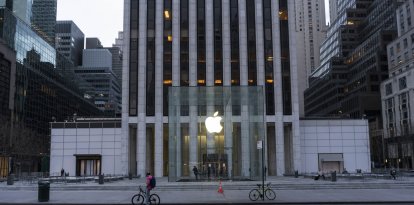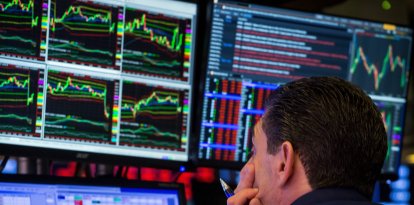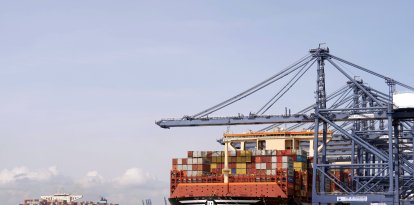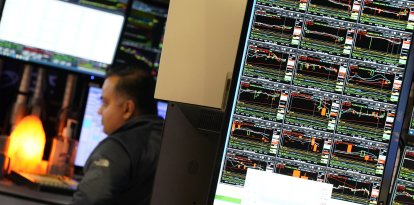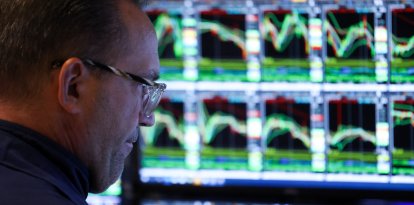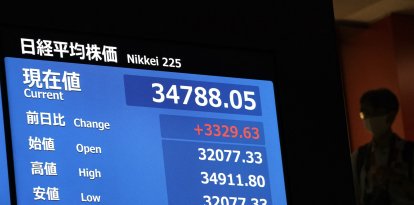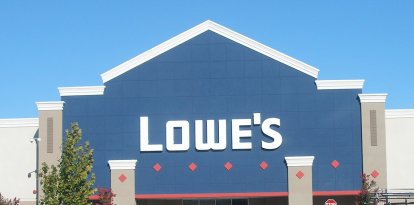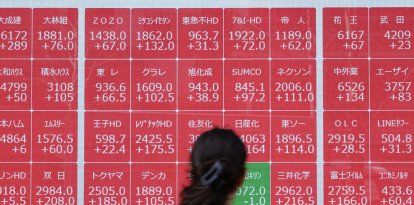Trump details in depth his economic policy: Promises more tariffs and to lower the corporate tax to 15%
The former president revealed that, for a potential second term, he will implement a 'Trumponomics' on steroids, based on deregulation and protectionist measures.
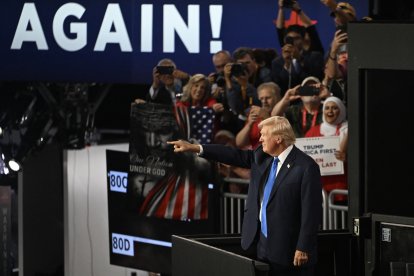
Trump plans an economy that relies on lower taxes, more deregulation and lots of tariffs.
Until today, beyond his usual promises that he will make "America great again," former President Donald Trump was very cautious about revealing his economic policy for a potential second term. But now we do have a clearer idea: if he beats Joe Biden in November, the most plausible scenario according to the polls, a Trumponomics on steroids is likely on the horizon. That is more deregulation, lower taxes, and much more protectionism.
In an extensive interview with Bloomberg magazine from his mansion at Mar-a-Lago, Trump spoke at length about his economic plans for the United States. In a humble tone, the former president acknowledged that, unlike his first term, he is now better prepared and advised to handle the economy much better. "Now, I know everybody. Now, I am truly experienced," he said.
According to Bloomberg, Trumponomics' main lines (tariffs, low taxes and deregulation) might not be different from those of his first term, although it would seek to implement them with greater speed and efficiency.
In that regard, the former president stressed that he now has a much better understanding of what Bloomberg cataloged as "the levers of power," including the importance of selecting the right people for the right jobs. "We had great people, but I had some people that I would not have chosen for a second time," Trump said.
Who accompanies and surrounds Trump on economic matters?
Within the former president's inner circle on economic matters are:
- Brooke Rollins, president and executive director of the America First Policy Institute (AFPI)
- Linda McMahon, director of the Small Business Administration under Trump
- Robert Lighthizer, who served as U.S. trade representative under Trump and would likely play a central role in a new administration
- Larry Kudlow, former head of the National Economic Council
- Kevin Hassett, former chairman of the Council of Economic Advisers and a candidate to lead the Federal Reserve
- Scott Bessent, founder of hedge fund Key Square Group LP
- Russ Vought, policy director of the Republican National Committee
- Arthur Laffer, a proponent of Reagan-era supply-side economics
.
Corporate taxes at 15% and more tariffs
Trump expressed his admiration for the 'underrated' President William McKinley, whom he called the 'king of tariffs'. According to the former president, McKinley contributed significantly to the United States' wealth, although history has not given him the recognition he deserves.
Trump, in addition, talked about his relationship with the country's top CEOs, his opinion on Jerome Powell, who would finish his term at the Federal Reserve in 2026, and even diagrammed the potential candidates to be secretary of the Treasury Department.
Among the most important measures planned by former President Trump is, once again, a tax reform. One of the former president's most important decisions in his first term was to cut the corporate tax rate from 35% to 21%. According to him, his idea is to reduce it to 15%.
Likewise, Trump gave an overview of what will be his most important measures, mentioning them in broad strokes:
- More drilling and reversal of Biden's green energy policy
- Less regulation, replicating his first term
- Protecting the southern border and reducing illegal immigration
- Reducing illegal immigration
- Pressuring enemies and allies to get better trade terms
- Heavily boosting the cryptocurrency industry
- Cracking down on reckless big tech companies.
Do CEOs support Trump?
When Trump was asked about the reaction of the country's top CEOs to his tax plan, the former president claimed that "they loved it."
According to Bloomberg, the former president, unlike in times past, is closely following the opinions of America's top executives, recognizing that many of them were very critical of him at the time and maintained a complex relationship. However, the scenario now is completely different, Trump leads the polls, his donations are skyrocketing and a large number of executives are unhappy with the state of the economy.
In addition, the former president is receiving important endorsements from billionaires such as Elon Musk, perhaps the most influential businessman in the country at the moment, or Bill Ackman.
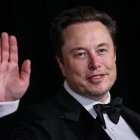
Politics
Elon Musk pledges to donate $45 million a month to Trump until November election
Joaquín Núñez
These endorsements hint that the technology and financial sectors are willing to lend a hand to Trump, who last June 13 met privately in Washington with dozens of the country's most prominent CEOs.
At the meeting were Jamie Dimon, CEO of JPMorgan, Tim Cook of Apple, and Brian Moynihan of Bank of America. According to Bloomberg, it was a "fireside chat" organized by Business Roundtable, a nonpartisan lobbying group.
Trump said the meeting was a success despite some critical press reports. In addition, the former president surprisingly revealed that Dimon is among his candidates for the new secretary of the Treasury Department. This is an unexpected candidacy considering that the Republican nominee went so far as to label Dimon an "overrated globalist" on his social network Truth Social.
Dimon himself has praised Trump publicly, most recently at the World Economic Forum in Davos.
"Be honest," Dimon said in January. "He was kind of right about NATO, kind of right about immigration. He grew the economy quite well. Tax reform worked. He was right about some of China. … He wasn’t wrong about some of these critical issues, and that’s why they’re voting for him."
Dimon's support and that of other Wall Street bigwigs gives credibility and strength to a Trump who, as he revealed in the interview, is thinking about massive deregulation and also applying strong protectionism, perhaps raising more doubts about his economic proposal.
Tariffs are non-negotiable
Trump flatly praised McKinley, apparently his new protectionist reference.
"McKinley made this country rich," Trump asserted. "He was the most underrated president."
According to the former president, McKinley's successors squandered his legacy on costly government programs like the New Deal and, moreover, destroyed the image of an important tool for the economic management of the state.
“I can’t believe how many people are negative on tariffs that are actually smart,” Trump says. “Man, is it good for negotiation. I’ve had guys, I’ve had countries that were potentially extremely hostile coming to me and saying, ‘Sir, please stop with the tariff stuff.’”
Thus, Bloomberg explains that Trump is ready to prescribe more of the same tariff medicine, including to European Union allies. In addition to targeting China with new tariffs of between 60% and 100%, the former president assures that he would impose a general tariff of 10% on imports from other countries.
Some critics claim that this measure could exacerbate inflation or slow economic growth, but the former president considers that, in this way, it protects domestic industry and U.S. workers.
Perhaps, outside the tax reduction, deregulation or the intention to boost the cryptocurrency industry, the increase in tariffs is the economic measure that makes the most noise among analysts and experts.
RECOMMENDATION
